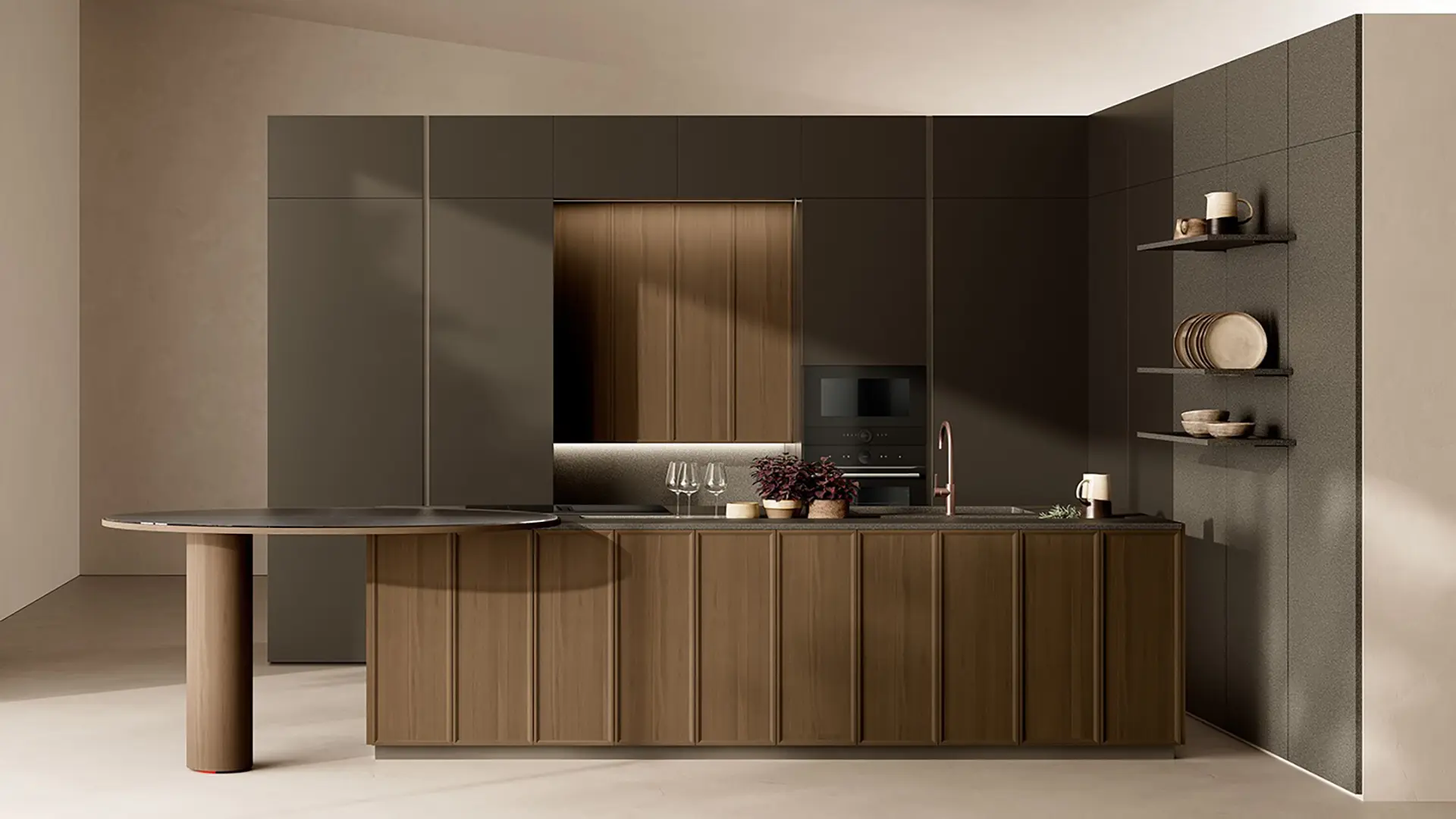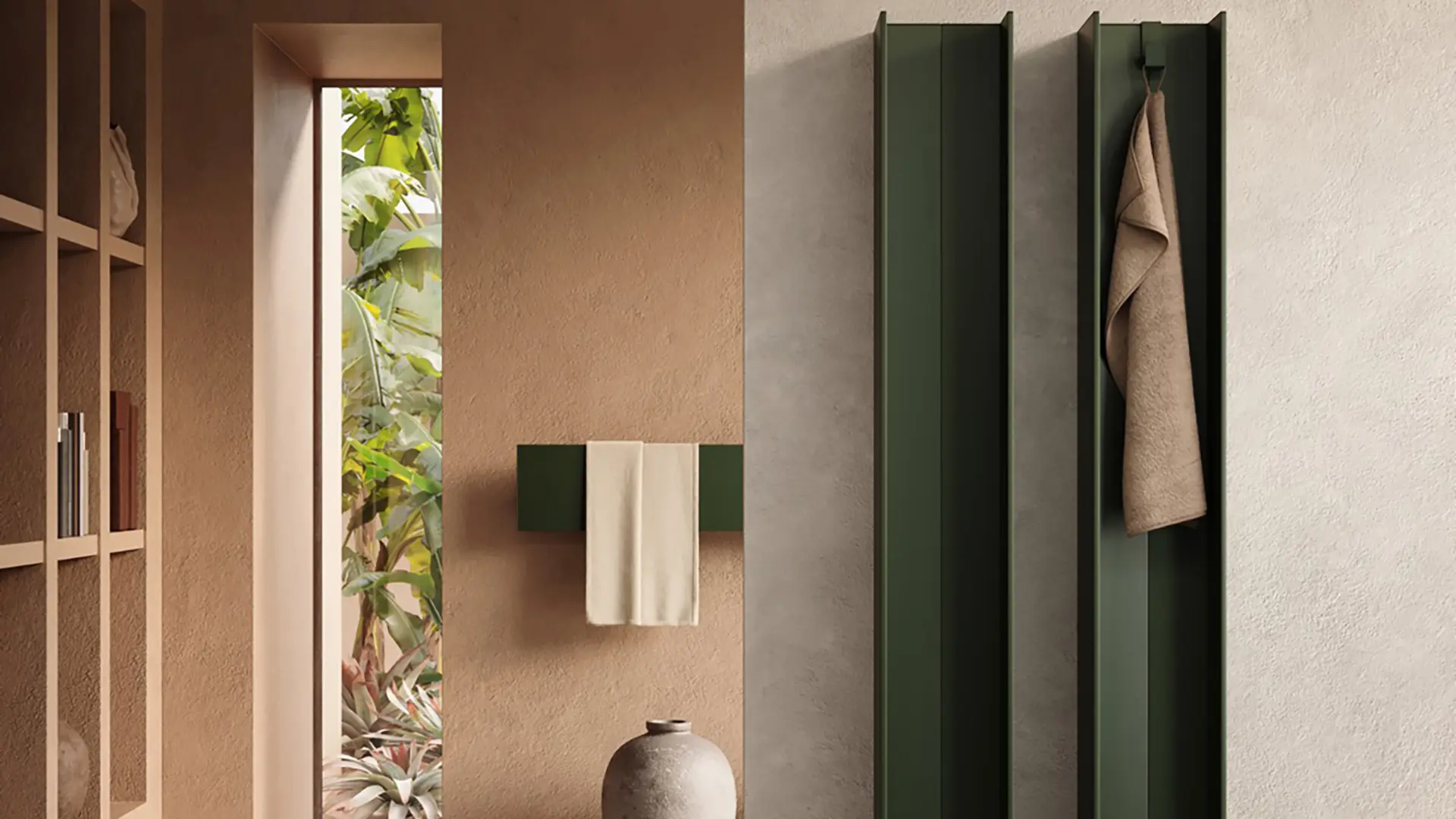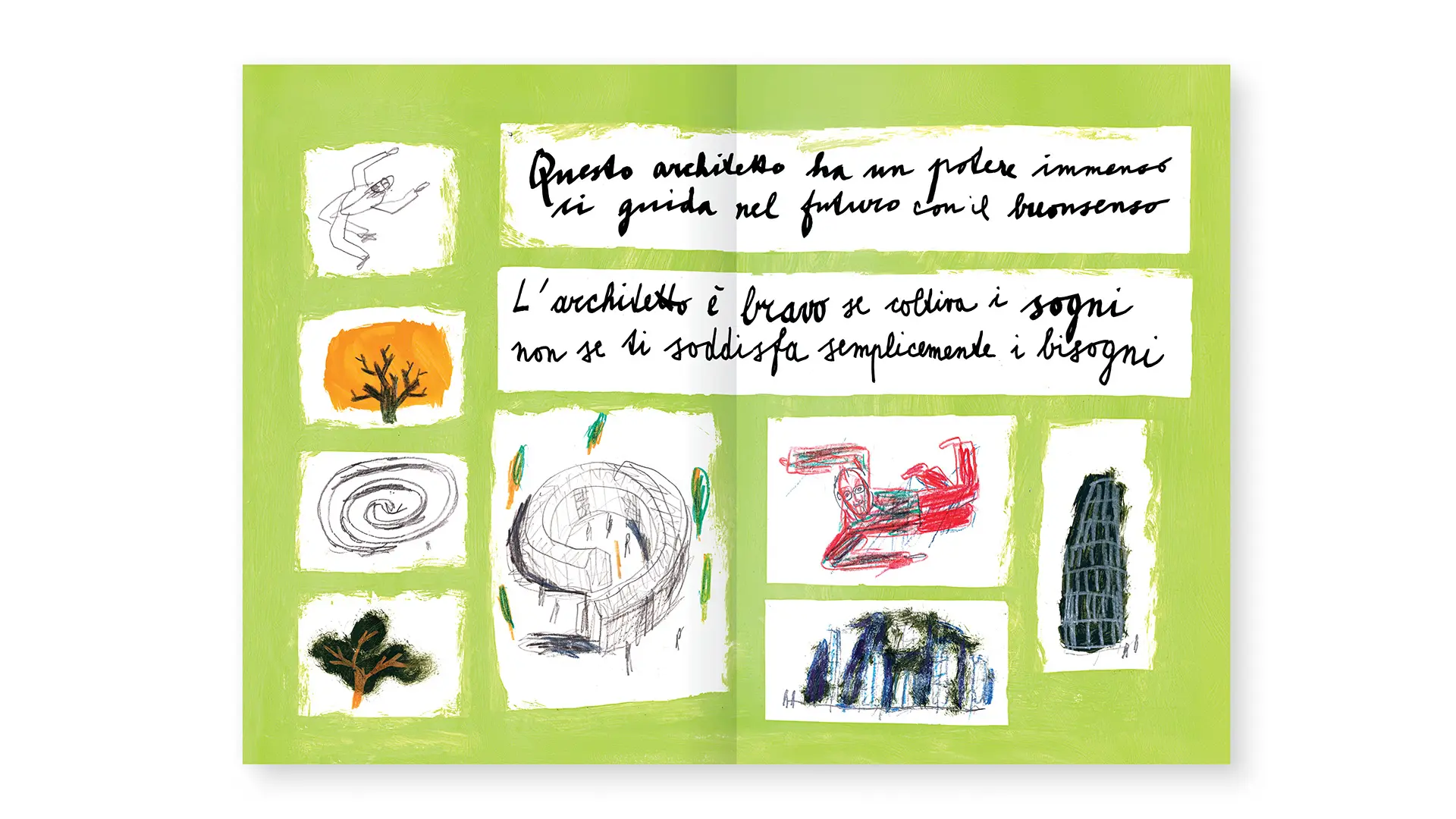Wood transforms the kitchen space with craftsmanship, technology, and continuity with the living area
Living, as told by Giulia Molteni: ideas, projects and the home
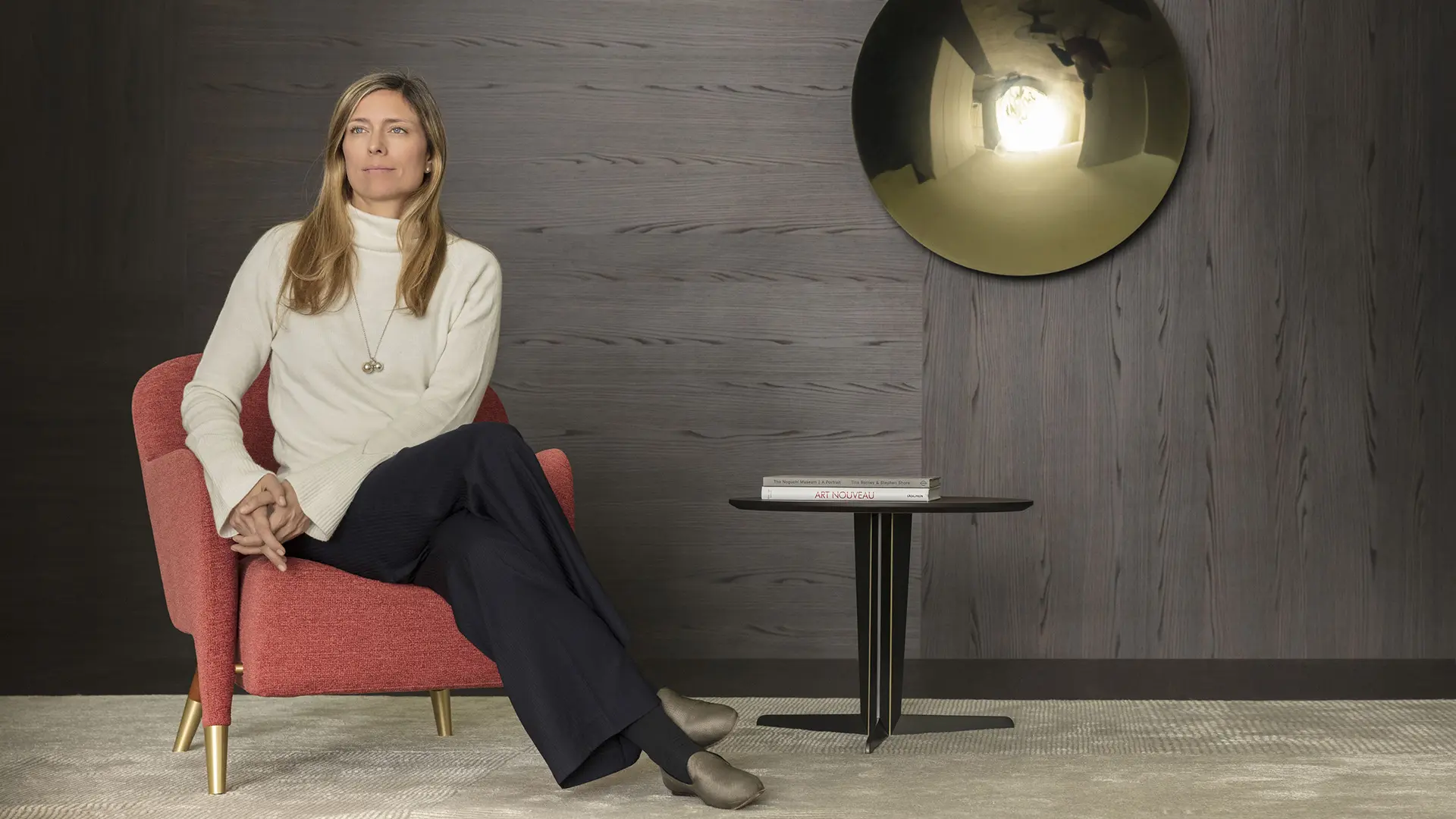
An obsession for quality, design as the added value in the competition stakes, and a nose for the future. "In Molteni we have everything".
"Today, spaces are versatile, multifunctional. The home is a nest that offers protection and establishes a fluid dialogue with the eclectic and cosmopolitan environment." Precise, scrupulous, rattling off data, visions and products in the post-Covid era: Giulia Molteni, Head of Marketing and Communication at the Molteni Group, talks about the concept of living according to the company founded in Brianza in 1934.
"In Molteni we have everything, we have Gio Ponti on one side and Vincent Van Duysen on the other."
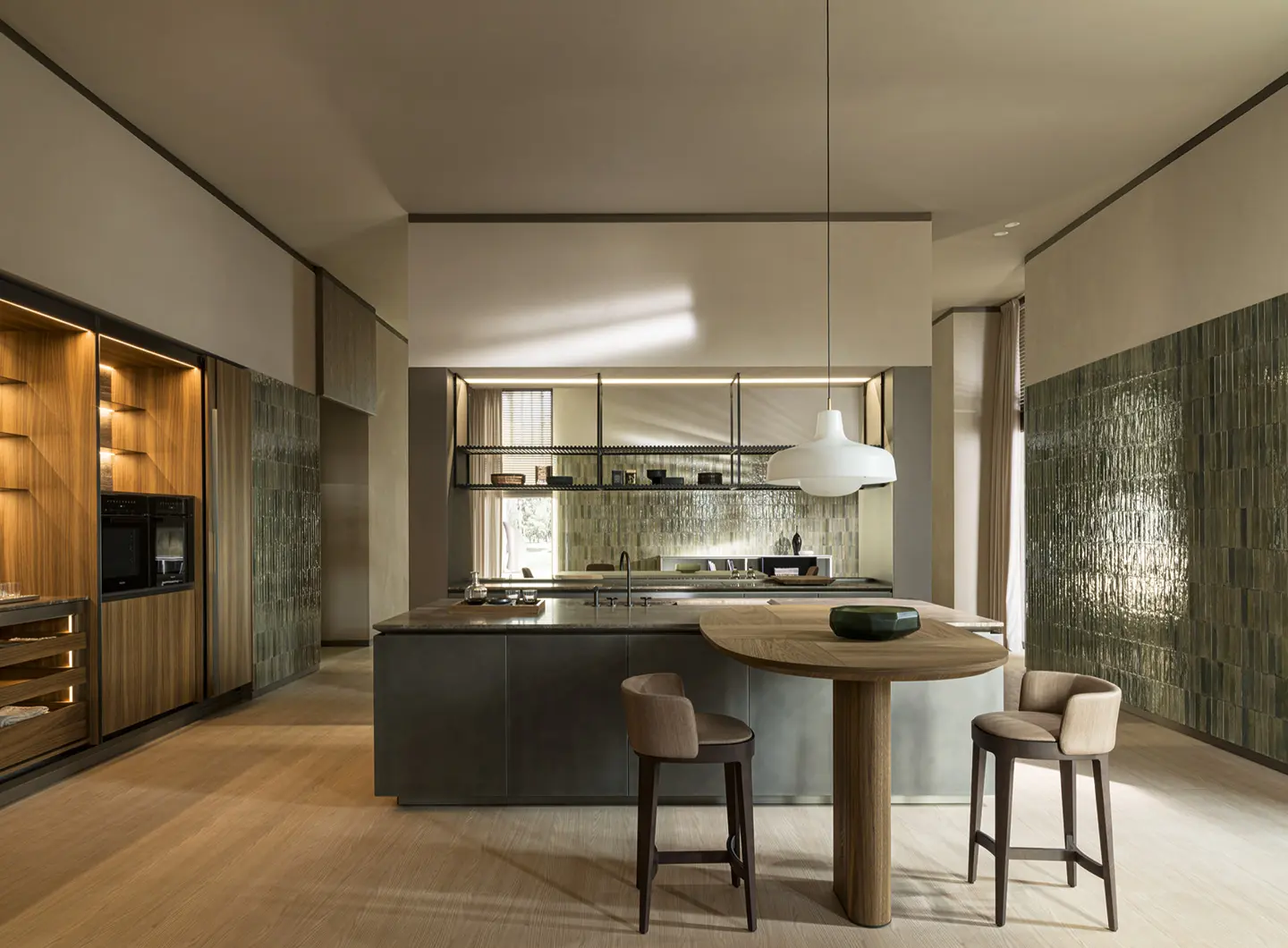
If there is one, it's one we have had for quality since my grandfather's time. The emergency has not changed the needs of our consumers; our products need to be able to read the evolution of tomorrow's scenario, to change the living experience without changing the company's founding values and DNA. A home that is eclectic but also contemporary and functional for modern living.
We have just been through a particularly difficult year, which has had an impact on our entire structure, such as the sudden halt in production. This has triggered a great stimulus for change; in company organisation, budgets, financial planning and marketing.
Quite well: -8% on the previous year with profitability increasing. An intense 2020 that rewarded us in the end. Also thanks to the acceleration of the digitalisation process, which supported sales, such as Molteni@Home, a service launched in March with the onset of the pandemic, with the aim of putting points of sale in touch with customers at home. The impetus came from the American markets and our US branches, which are ahead of the curve on digital sales, since the consumer there also tends to be younger. We also developed a project to send fabric samples to people's homes. These actions stem from the conviction that at a time like this you have to keep your customer base close by raising the bar in terms of service.
Digital technology has proved fundamental in this sense, and we also launched an e-commerce platform dedicated to the American market, as well as the Molteni Experience, a virtual and immersive showroom, the first to offer a high-level experience to visitors and which, in the absence of the Salone del Mobile, has allowed us to show the world the new collection.
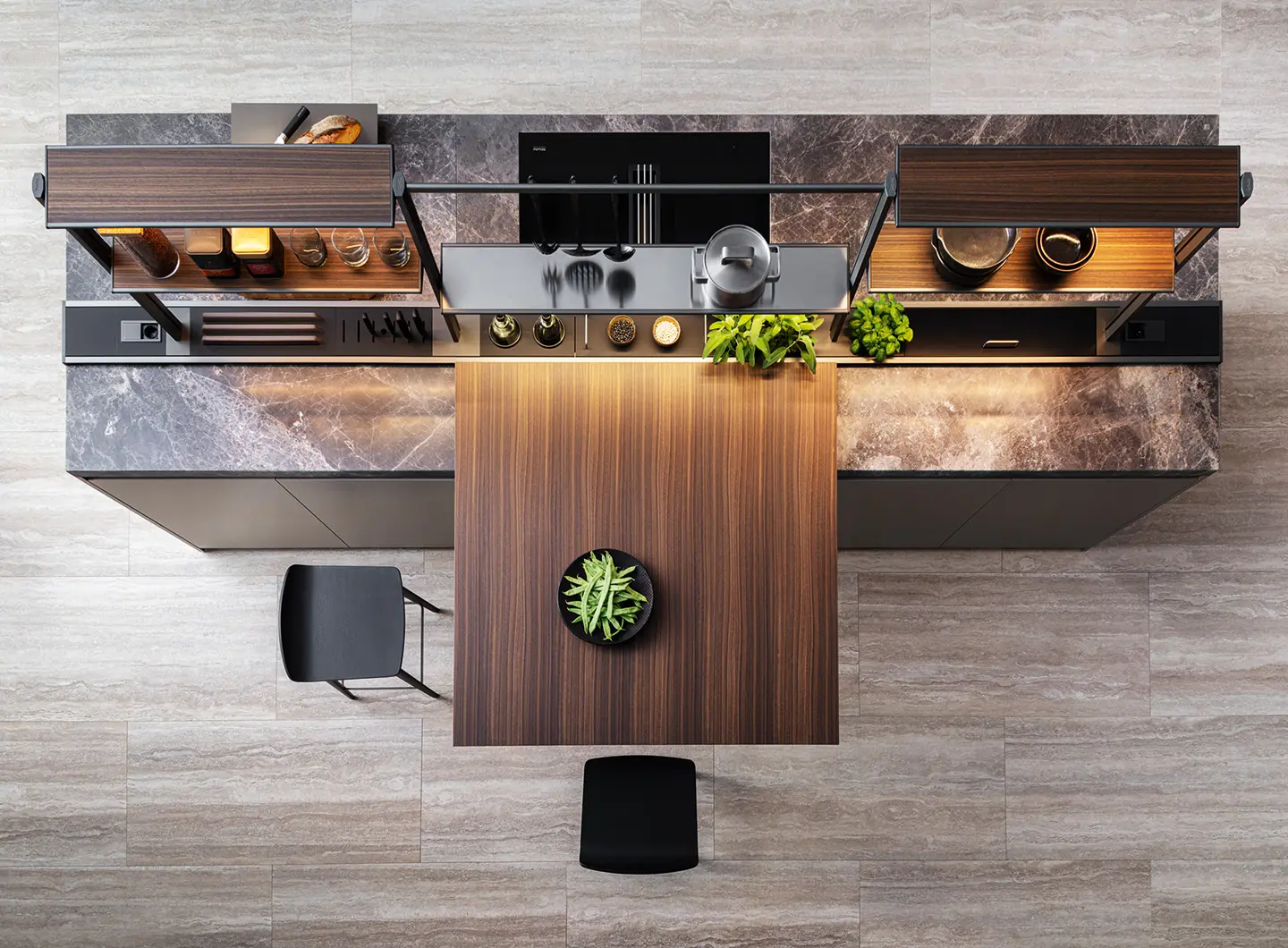
Changes were already underway, but they have accelerated. We have increased our export share in almost all countries, the United States, Asia, Great Britain, in all the more advanced markets where digital technology has supported us better. There is also the other side of the coin: the trade contract sector has taken a hit, some projects have been scaled down from 2020 to 2021.
We still wanted to be close to our employees by increasing the annual production bonus by 20%. We have guaranteed smart working, brought forward the redundancy fund and hired 50 people, 50% of whom are women, also making great strides in terms of diversity.
With UniFor, we launched Touch Down Unit, designed by Studio Klass, the first nomadic work station that travels from the office to the home and derives from the need to be able to reorganise quickly.
In just a few weeks, we were able to achieve goals that until recently would have been unattainable. Sometimes an emergency forces you to go beyond your 'limits'.
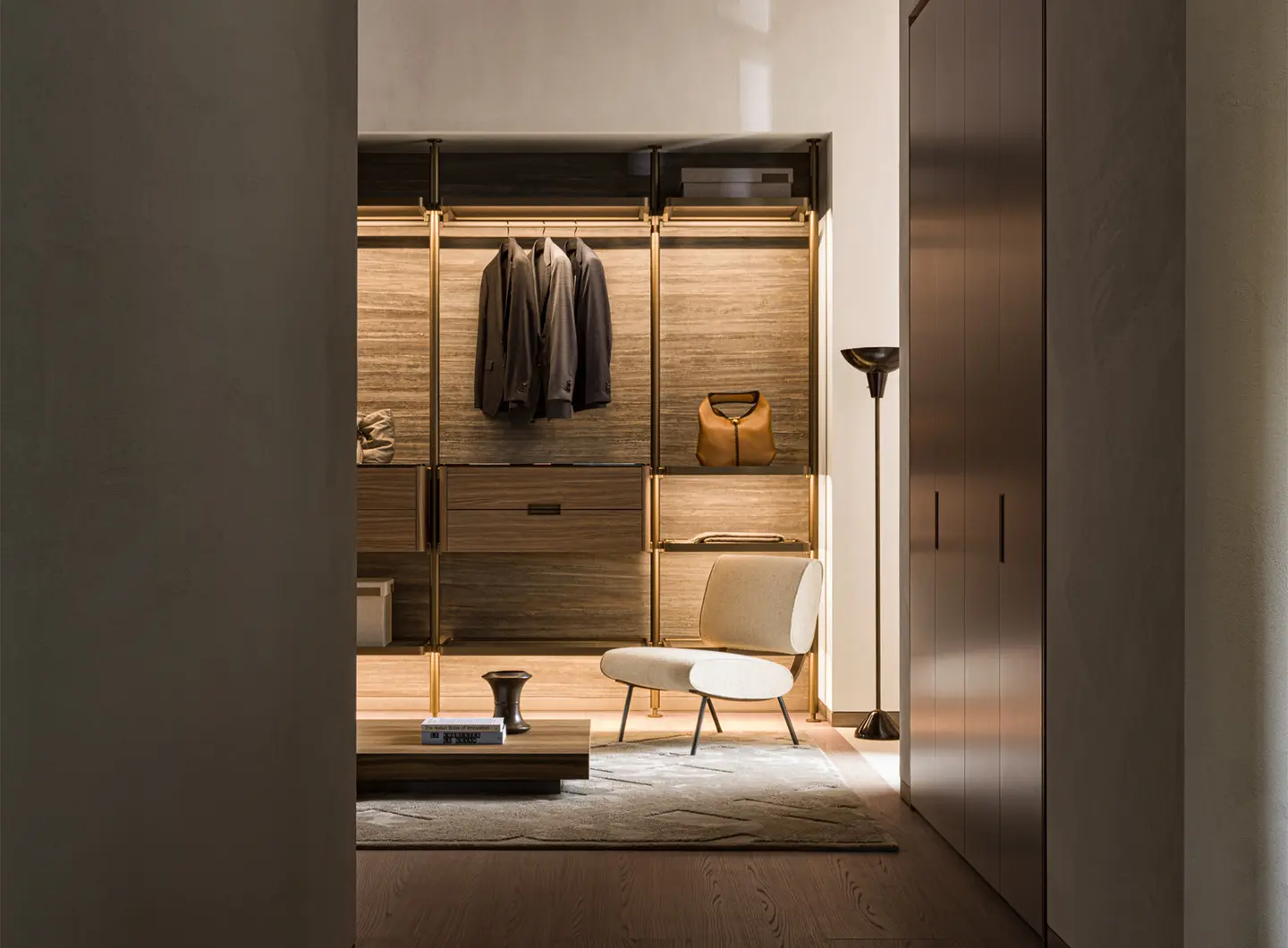
Responding well to moments of crisis, something we had already demonstrated in 2008 with the fall of Lehman Brothers, although that had far less impact than the pandemic. I think Italians have a particular characteristic, that under stress we know how to reinvent ourselves: between 2020 and 2021 we opened eight Flagship Stores, 18 shopping outlets, 15 dedicated areas in multi-brand shops, we established our presence in key cities such as Paris, Barcelona, Casablanca, New Delhi, and new openings are planned in Cologne and Berlin, Vienna, Salzburg. In the United States we will open in Dallas and San Francisco, and in Italy in Rome and Naples. Of course, the scenario is precarious, but we are used to that.
It is too early to talk about a comeback, we are still in the middle of the dilemma. The situation is uncertain, certainly the home has had its moment of glory. We have lived in isolation from our hectic lives and our world travels, we have lived in a dimension of necessity.
Nomadic furniture in the kitchen. The kitchen has become a convivial space that brings the family together, but in a moment of emergency it becomes a space for study and work. For example, we launched XY by Francesco Meda, which adapts to each of our kitchens, allows USB access and also becomes a worktop. By adapting our product strategy we can say that we have responded to shared needs.
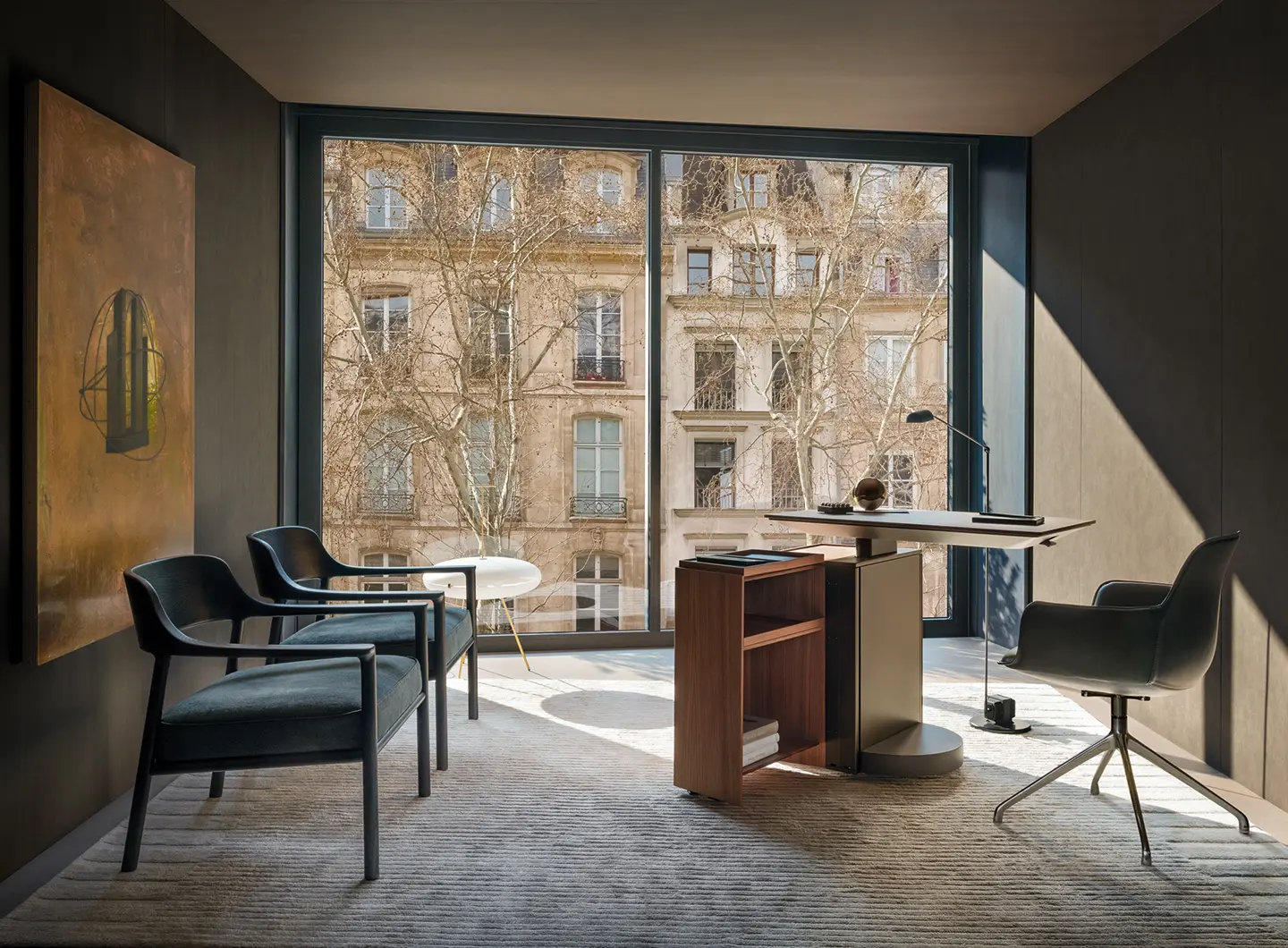
He was a great friend of my grandfather's and father's; we have some beautiful drawings in the archives that look like paintings. He was an architect, but also a philosopher, a great teacher who gave us a life lesson on design, a great purveyor of suggestions and ideas.
The ideas that flow into projects are the core of our companies, where design is the competitive factor. Architects' minds are very open to the world, the best ideas come from dialogue, design is born from the meeting between industry and architects. In April, we launched the Round armchair, which is available for pre-order at flagship stores and our e-commerce sites, designed by Gio Ponti in the early 1950s, which represents this very thing: modernity with spatial shapes that make it almost too advanced for its time, it was called 'Eight Pieces' because of its avant-garde dismantling, if you think in terms of sustainability
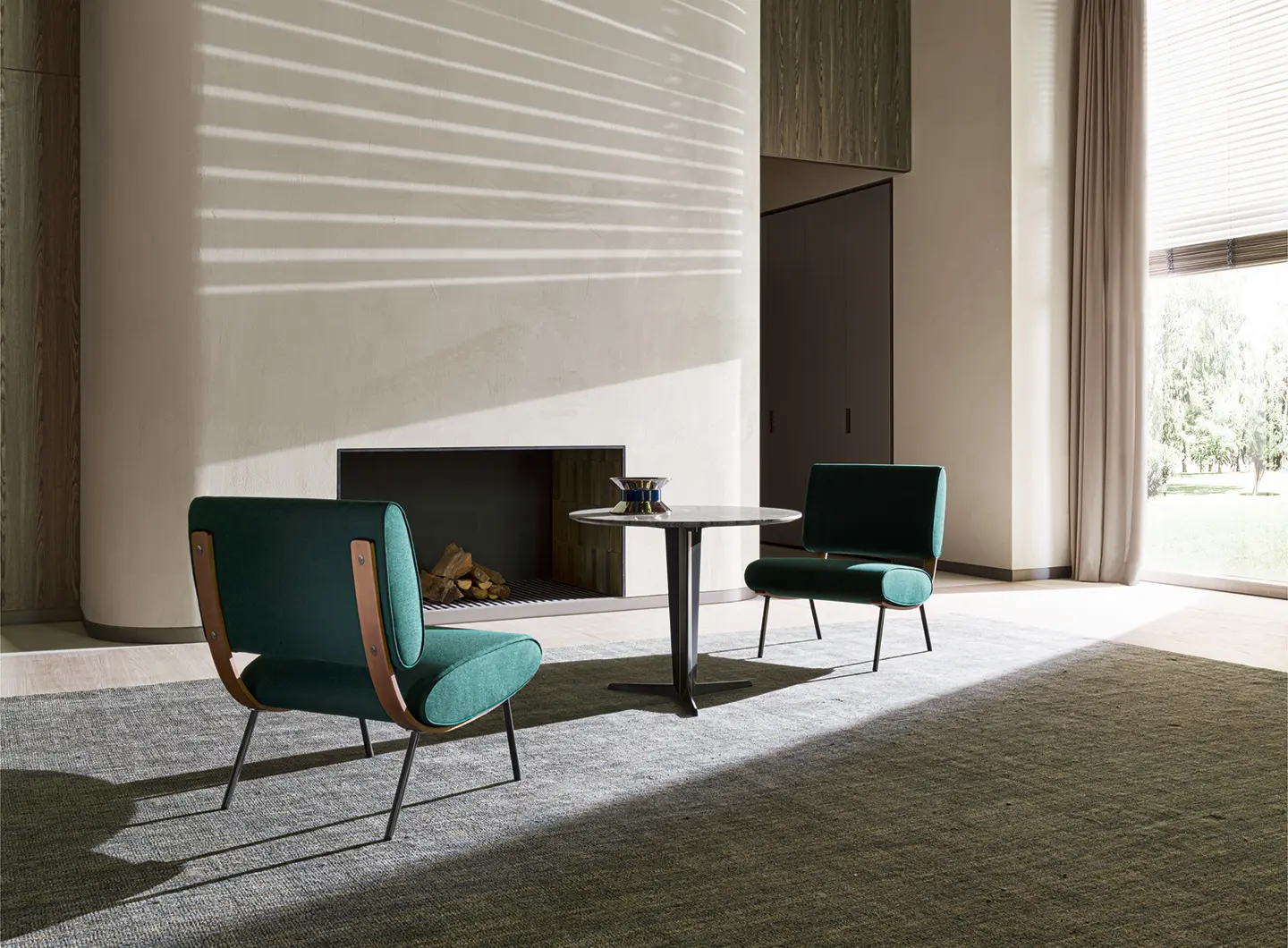
My grandfather was one of the thirteen founders of the Salone, and the event holds a special place in our hearts. We hope it will be a great success in September, to celebrate the return to normality.
Vincent Van Duysen, internationally renowned Belgian architect. He designed the Gliss Master wardrobe system and the Ribbon bed for Molteni&C.
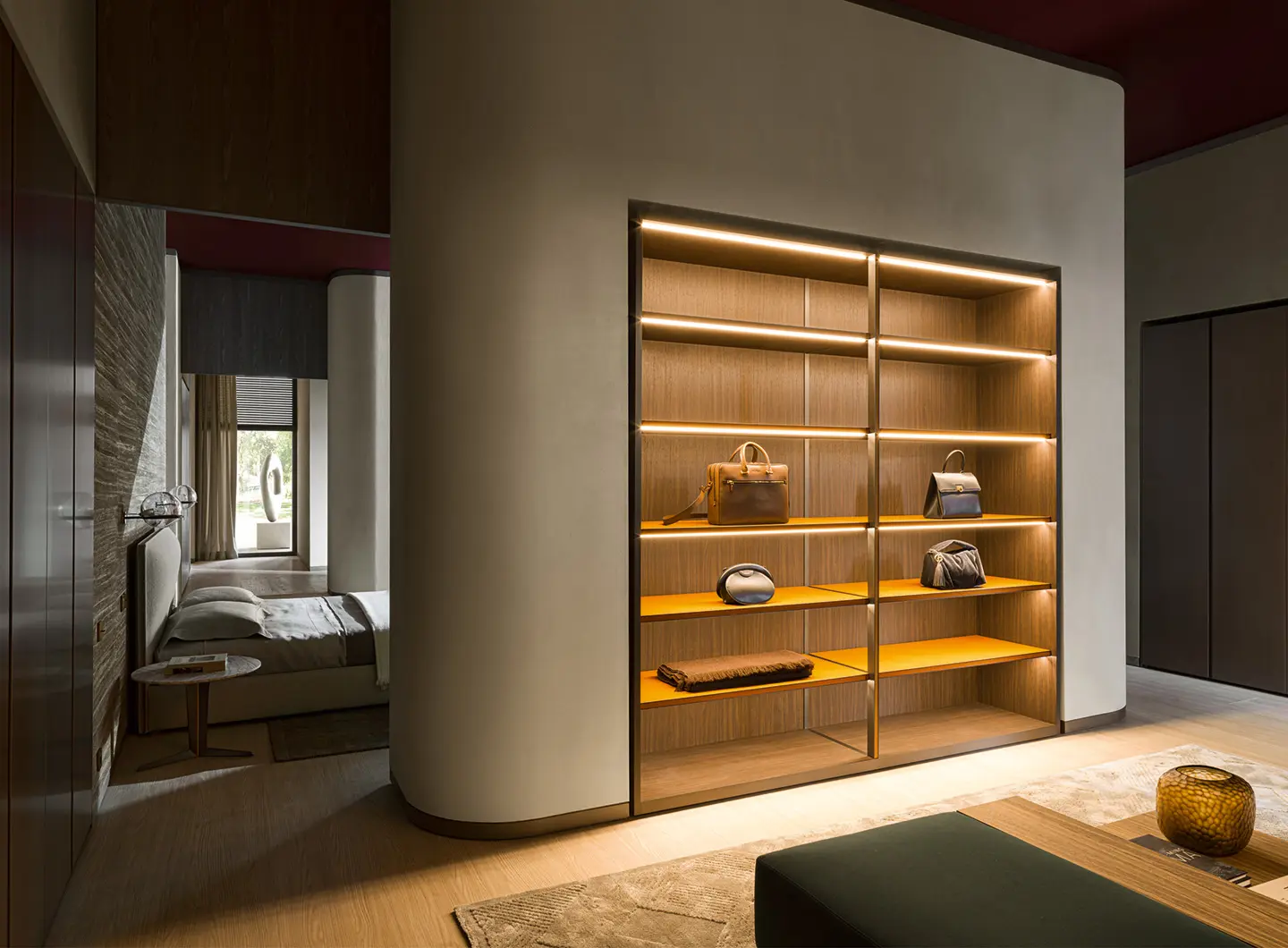


 Stories
Stories




